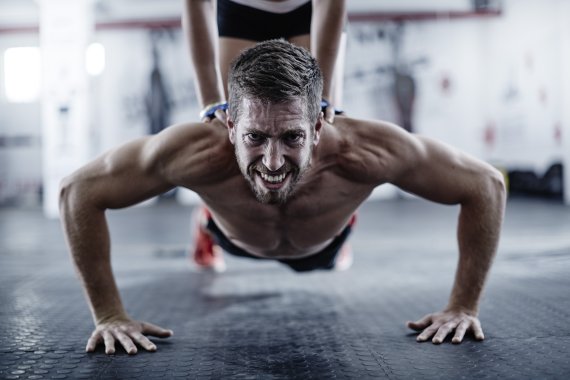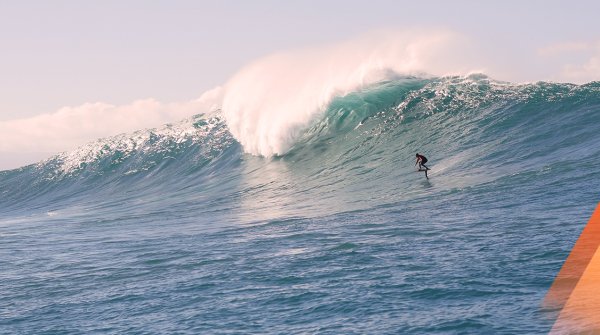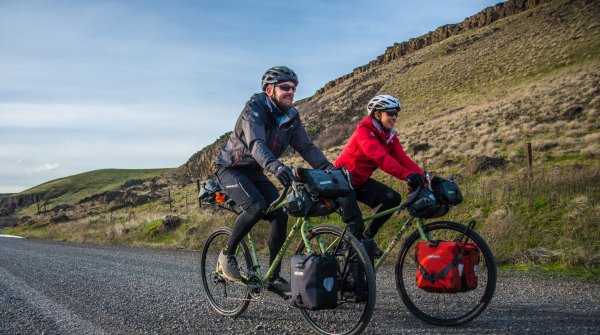
Every athlete has already brought his body to its limits, and sometimes he woke up afterwards with sore muscles. Everyone knows the feeling. But very few people know what happened during training.
To find out, ISPO.com talked to the expert Dr. med. Markus Klingenberg. Klingenberg is a specialist in orthopaedics and sports medicine in a joint practice at the Beta Klinik in Bonn/Germany.
As a cooperating doctor of the Olympic base Rhineland he cares for many amateur and top athletes. He is also the author of the book "Return to Sport - Funktionelles Training nach Sportverletzungen" (Pflaum Verlag) and regularly gives lectures on sports medicine topics.
ISPO.com: Dr. Klingenberg, what exactly is "aching muscles"?
Aching muscles is a micro-injury of the musculature. The musculature consists of several different contracting elements, i.e. elements that contract. These are mainly protein structures. And they can tear due to overloading or misloading. This happens on the smallest level, i.e. within the muscle fibers.
What ultimately triggers muscle soreness?
Among other things, an unaccustomed burden. In other words: When the muscles or a combination of muscles are strained in an unusual way. For example, when practicing a new sport or new patterns of movement.
Another reason may be mechanical overload. Especially when we think of strength training, we want to set an exaggerated stimulus so that the body becomes stronger or builds up muscles. And if this stimulus is too strong, it comes to these injuries. Especially intensive or slowing, cushioning, stopping movements can lead to these damages.

What exactly leads to the noticeable pain in case of sore muscles?
The noticeable pain usually occurs with a time delay. Immediately after a movement that may have hurt, there is a painless interval.
The sore muscles as such do not occur until the following day or sometimes until the second day after the strain, and this is connected with an inflammation in the musculature, which takes place within the framework of the restructuring and reduction processes. That's why painkillers and anti-inflammatories help if you take them.
How long can this muscle soreness last?
Usually you say: 48 to 72 hours. If it takes significantly longer, it is suspected that it is not just a simple muscle soreness, but already a major injury, and that perhaps some muscle fibers are torn.
And what does an athlete do if he continues despite stiff muscles?
Other muscle injuries such as fiber tears, muscle bundle tears or even a tear of the entire muscle. That's rare, but possible.
Does it make sense to exercise loosely after the sport?
Yes. Just as warm to take a shower or go to the sauna. These are regenerative measures because they improve blood circulation. And the better the blood circulation is immediately after the training - this can also be promoted by a massage - the better is also the substance transport.
And what about nutrition?
Drink enough, but that's a general tip anyway. An increased supply of vitamins and secondary plant substances also makes sense. Whether now over fruit and vegetables or food auxiliary means, I leave times to everyone. Lots of liquid. Omega-3 fatty acids, such as nuts or fish such as salmon and trout.
And when I think of dietary supplements: BCAA. These are the four essential amino acids that make up the muscles. These would be the most important nutritional factors.
Are there places where soreness lasts longer or is caused more quickly than in other muscle groups?
Lasting longer it often does in large muscle groups such as back, thighs and chest muscles. Faster evoked? That's hard to say because it depends on what you train. You probably have muscles, you have never had sore muscles, because you have never trained them.
Basically: Every muscle has a performance capacity within which it does not get sore muscles. It's called your target area. If you exceed that range, you'll get sore muscles. You can also get sore muscles in your diaphragm from laughing. So it doesn't give one muscle more susceptible than the other. It is more a question of whether you will ever get into the situation of using the muscle accordingly.
Is it a myth that professional athletes don't get sore muscles?
A professional athlete can also get sore muscles. He only set for it far higher charms.
Is there a tip in case I want to do the same exercises the next day?
If I want to do the same training program again the next day, then only with half the load. If I press 100 kilograms on the bench otherwise, then I take 50 kilograms in regeneration. Stimulating the metabolism in the muscle is the key to success. I have just said that it is above all slowing down movements that cause muscle soreness.
Conversely, this means - as a tip - that above all eccentric training with good warming up is the best prophylaxis. If slowing down leads to muscle soreness, training slowing down, i.e. eccentric training, is of course the best prophylaxis you can take. Warming up makes sense, even if some studies keep saying you don't need to warm up. The more intensive the upcoming load, the more I have to warm up to counteract muscle soreness.
Does stretching play a special role in this?
There is passive and active stretching, and before an intense strain it must be active stretching. For example, if you bounce your arms back before pressing the bench, this is dynamic stretching. This increases the tension in the muscles, which is what you want during intensive strength training.
After training, the same muscles should be stretched more passively, i.e. holding. This promotes regeneration. Stretching can therefore prepare for the load. And after a load, passive stretching is more advantageous because it improves mobility.
Is training only good if it makes me sore?
No, it's not. I need to figure out what my training goal is. If I destroy my body again and again, I have to regenerate more and therefore have less training time. It's nonsense to say that if it doesn't hurt, it hasn't done any good.





